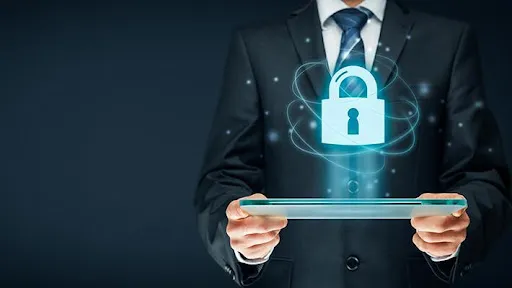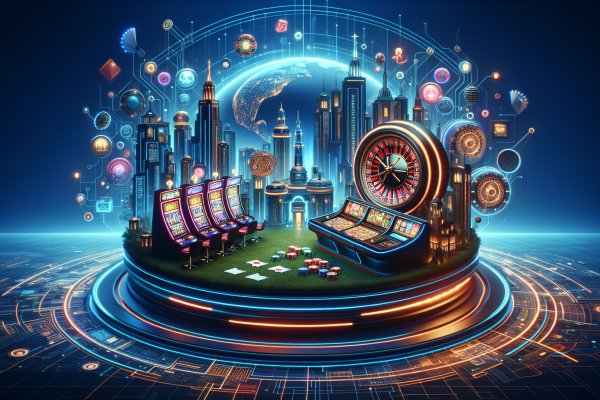In the vast realm of cyberspace, every click, every search, and every download tells a story. Often, these digital footprints, innocuous as they may seem, can become breadcrumbs leading back to you, revealing more about your habits, preferences, and personal information than you might be comfortable sharing. In a world of increasing cyber threats, targeted advertising, and ongoing debates about online privacy, the call to shield oneself has never been louder. Enter Virtual Private Networks (VPNs). Let’s embark on a journey exploring why VPNs are no longer a luxury but a necessity in our interconnected world.
Table of Contents
Unmasking the Online World
Every internet-connected equipment has an Internet Protocol (IP) address, which acts as a special identification number. Consider it to be your internet address. This address is accessible to websites, and it may be used to pinpoint your location and, consequently, a wealth of demographic data. Additionally, ISPs regularly track and retain information about your surfing behaviour and frequently sell this information to advertising.
Here’s the twist: while the internet promises global connectivity, not all of it is open for every user. Geo-restrictions can limit what content you can access based on your location.
The Power of VPNs
A Virtual Private Network operates as a secure intermediary between your device and the broader internet. When you activate a VPN, several things happen:
- Alright, so think of it like this: Your internet data gets scrambled up into some crazy code that’s super tough to crack. That way, even if someone swipes your info mid-air, they’re left scratching their heads because they can’t make sense of it at all.
- When you connect to a VPN server, websites and other online services see the IP address of that server rather than your own. Your true identify and location will stay concealed thanks to this approach.
- VPNs create a safe “tunnel” through which your data travels, untouched by potential threats lurking in the vastness of the internet.
Why VPNs Are Essential Today
- Look, in today’s world where data breaches and identity theft are the norm, it’s super important to keep your personal stuff locked up tight. That’s where a VPN comes in – it keeps prying eyes off your online movies, making sure you’re not their next victim.
- Bypassing Geo-Restrictions: Ever been greeted by the frustrating “content not available in your region” message? VPNs allow you to select a server in a different location, giving you the digital appearance of being in that region, and thus, accessing its content. This is particularly handy for entertainment aficionados using a streaming VPN to enjoy global content libraries.
- Safety on Public Networks: Public Wi-Fi, found in airports, coffee shops, and malls, can be a hotbed for cybercriminal activities. Using a VPN on these networks encrypts your data, safeguarding it from potential threats.
- Avoiding Bandwidth Throttling: ISPs sometimes intentionally slow down your internet connection based on your online activities. With a VPN, your online actions are hidden from your ISP, ensuring consistent internet speeds.
- Preserving Digital Freedom: In countries with stringent internet censorship, VPNs can provide a gateway to unrestricted information, news, and communication platforms.
VPN Selection: Navigating the Choices
Choosing a VPN can be overwhelming, given the plethora of options available. Here are some guiding pointers:
- Looking for a jackpot of entertainment options? Well, let’s chat about streaming VPNs. These tools are top-notch when it comes to delivering content at lightning speed. It doesn’t matter if you’re into movies, music or shows – a quality VPN lets you dip your toes in all these pools without breaking a sweat. So buckle up and get ready to dive into the vibrant world of entertainment like never before!
- Security Protocols: Research the security protocols the VPN uses. Protocols like OpenVPN or L2TP/IPsec are recognized for their robustness.
- No-Log Policy: To truly maintain your anonymity, choose VPNs that don’t keep logs of your online activities.
- Server Locations: You have freedom in viewing material from various regions of the world thanks to a large variety of server locations.
- Price vs. Value: While free VPNs might seem tempting, they often come with limitations. It’s worth investing in a reputable VPN that guarantees security and efficiency.
Challenges and Considerations
While VPNs offer numerous benefits, they also come with challenges:
- Slower Connection: Sometimes, speeds are a little bit slower due to the encryption process.
- Compatibility Issues: Ensure the VPN you choose is compatible with all the devices you use.
- Legal Considerations: Some regions have restrictions on VPN usage. Always ensure you’re compliant with local laws when using a VPN.
Concluding Thoughts
The digital realm is a reflection of our modern world — vast, interconnected, full of opportunities, yet not without its shadows and alleyways. Just as we’ve learned to navigate our physical environment with a keen awareness of safety and privacy, the online landscape demands a similar, if not greater, level of caution and vigilance. In an era where our most intimate details, preferences, and behaviours are continually up for grabs, it’s essential to be proactive about maintaining our online sanctity.
In this huge internet environment, VPNs act as the covering we don. They go beyond the simple technological fixes or updates we make to our digital life. They represent a larger view of online self-preservation and agency instead. They stand for the belief that while the internet provides a platform for collaboration, connection, and information sharing, each user has the unalienable right to decide what aspects of their online personae to reveal and what to keep private.
But when we consider the significance of VPNs, it’s equally essential to understand the larger environment. The sheer necessity for such technologies highlights a more general narrative about the difficulties of our digital age: a constant struggle between individual rights and corporate or governmental goals, privacy and openness, and other competing interests. Both a technological development and a cultural reaction to these issues can be seen in the rise in VPN usage.
Furthermore, our decisions are important since we stand at the confluence of technology, rights, and individual agency. The choice to use a VPN involves more than simply picking a provider; it involves taking part in a larger discussion about the sort of digital world we want to create for future generations. Do we see a world where people are continually checking their virtual backs when they are online? Or should we want to create a setting where respect for privacy is the norm rather than an extravagance?
Beyond their algorithms and servers, VPNs ultimately serve as a reminder of the always changing nature of our digital rights and the extent we occasionally have to go to assure their preservation. Supporting tools and practices that value individual autonomy and privacy becomes not just advantageous but essential as our world becomes ever more digital and as our online and offline identities merge.





